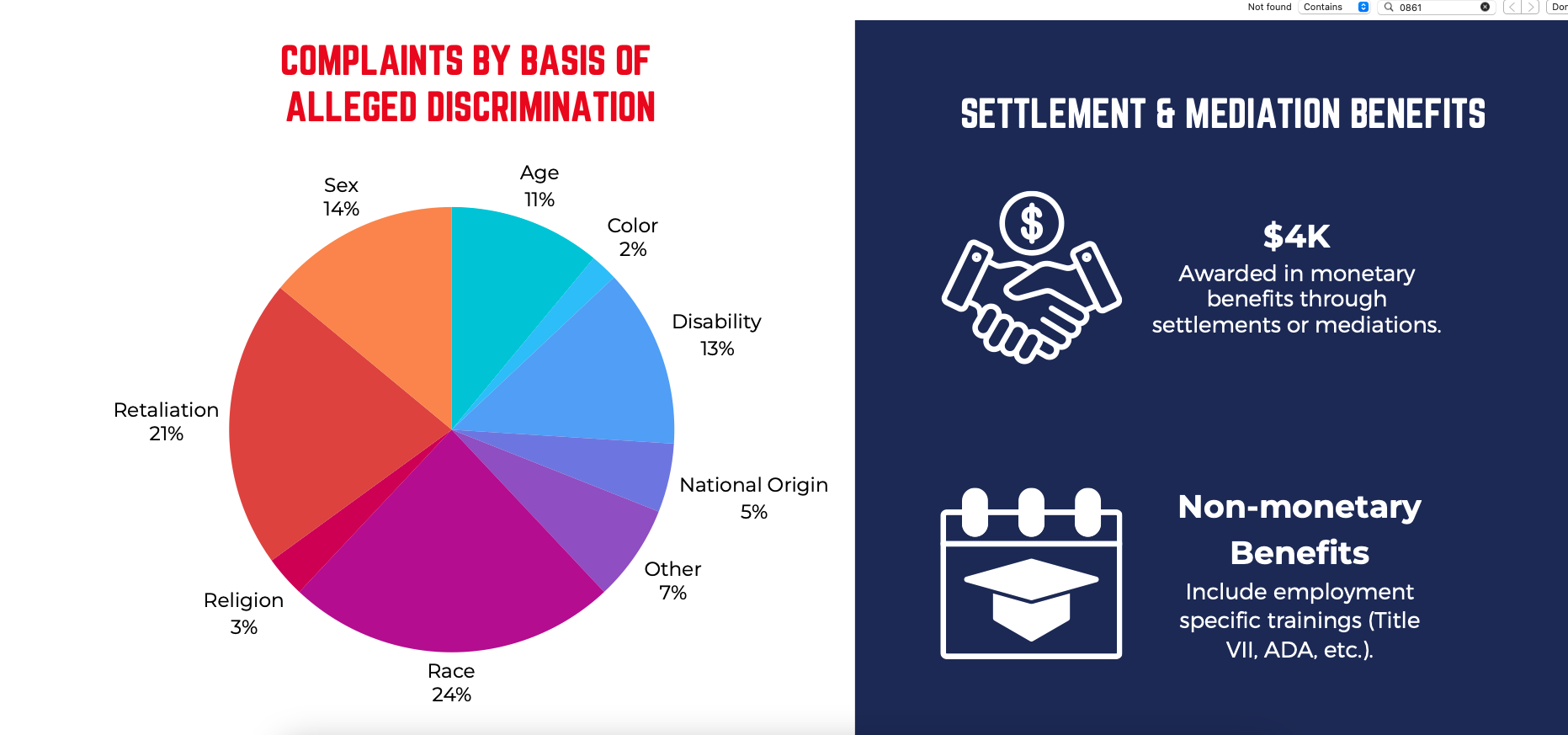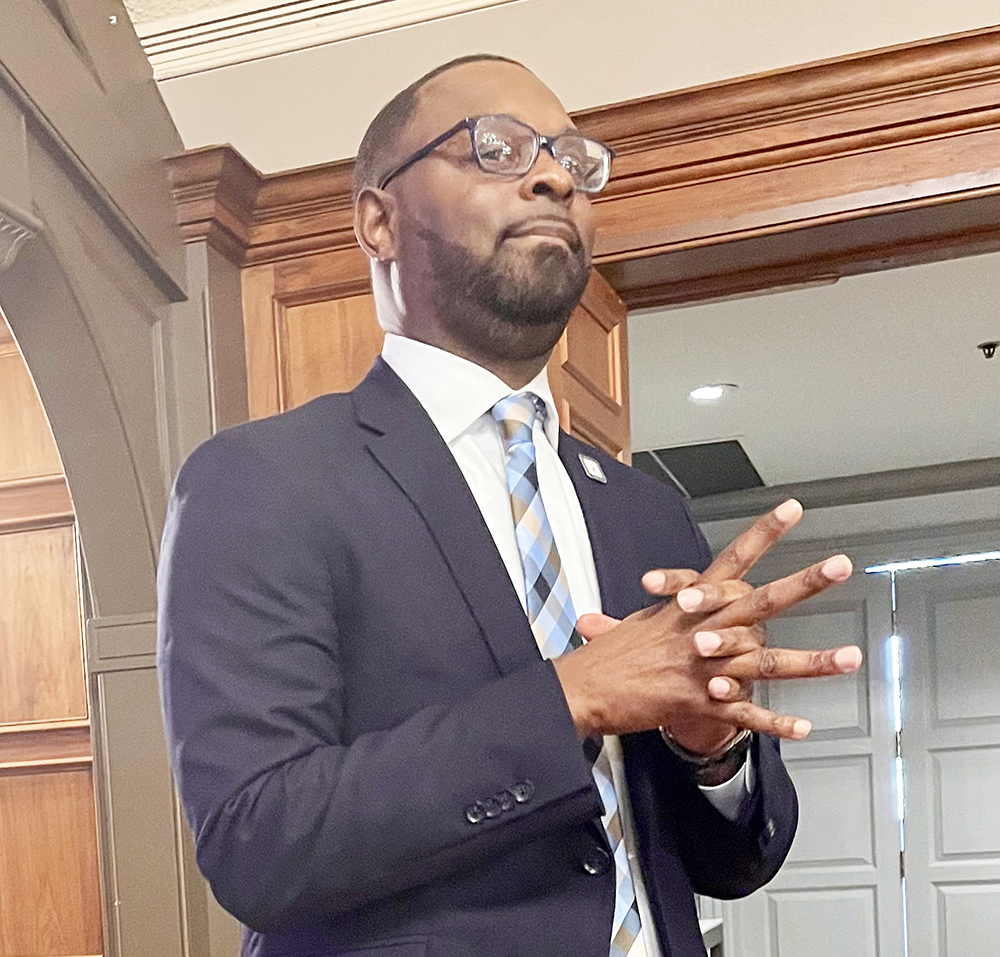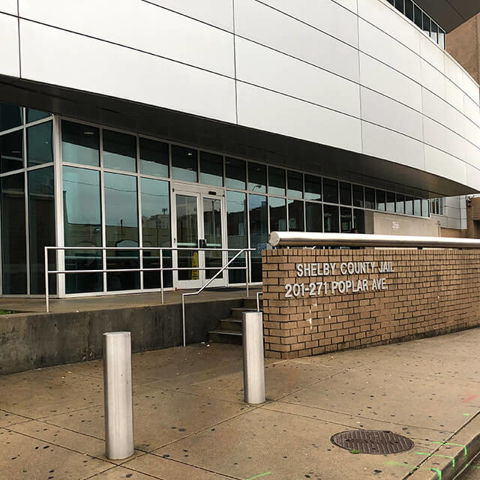Work has begun on a project that will forever end parking on the Greensward at Overton Park and open new trails in a new part of the Old Forest, according to the Overton Park Conservancy (OPC).
A decades-long struggle to end Memphis Zoo overflow parking on the park’s signature field ended with an agreement by the zoo, OPC, and the city of Memphis in 2022. Read our story about the deal and a timeline of the saga here.

Parking project
The project to end Greensward parking is a multi-phase dance with specific choreography. OPC outlined those steps in a Greensward update on its website Monday.
The first phase — repaving and re-striping the zoo’s main parking lot — is complete.

The second phase will include demolishing crumbling asphalt in the park’s southeast corner (an are close to the corner of Poplar and East Parkway). That area will then be leveled and paved for a new public parking lot. This phase will also include getting some old city-owned buildings ready for the zoo’s new maintenance facility.
This phase is now in the engineering and permit phase, OPC said, and work will begin when those permits are in hand. No timeline was given for its completion.
When all the construction in Phase 2 is complete, the zoo will move its maintenance and adminstrative functions to that space, the former General Services facility on the park’s east side. This move will leave empty the zoo’s current maintenance area along North Parkway.
That area will, then, be razed for a new parking lot there in Phase 3 of the plan.
“When that lot opens,” OPC said in a statement Monday, “cars will no longer park on the Greensward.”

In Phase 4, OPC will create a new walking loop around the Greensward.
”We appreciate your patience as we complete all these steps!” OPC said. “We’re very fortunate that this project is being funded through a $3 million HUD Community Project Funding grant, thanks to Congressman Steve Cohen.

“We received HUD’s approval to proceed in fall 2024 and began the environmental review process at that time. Since then, the Conservancy has been working closely with the city and the zoo to refine the design of the parking area and new zoo maintenance facility.
“We’re happy to be teaming up with our partners at the zoo and the city on this long-awaited project, and to see so much progress underway.”
New trail, Old Forest
The deal for parking also included the zoo restoring 17 acres of forested parkland back to the OPC and the Old Forest. Work to open these acres has already begun and it will intensify and continue. OPC hopes to have access open and new trails ready by fall.

“If you’ve walked in the forest recently, you may have noticed some activity in the fenced acreage that’s currently on zoo property and will come under Conservancy management soon,” the statement said. “Crews have finished building a new boundary fence for the zoo that will allow us to eventually remove the old fence and open up these forested acres to the public.
“Before the old fence comes down, we have two more tasks to complete. We’ll be going out to bid in the next few weeks for a contractor who will build the new walking trail over the summer.
“After the trail is created, we’ll have another contractor come in to remove invasive plants. When that work is substantially complete, we’ll take the fence down. Our goal is to have a ribbon-cutting and open the trail this fall!”






















